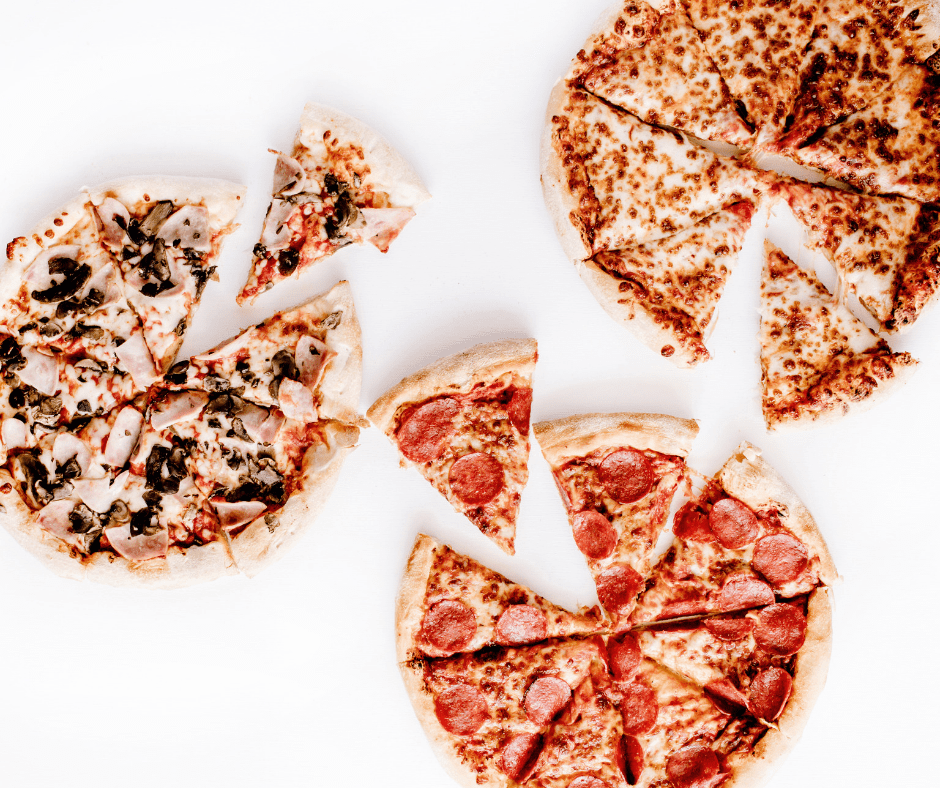Plenty of us have tried every diet out there and while they work well at first, they tend to get harder and harder. Eventually, we fall back into our old habits. Want to break the cycle and learn how to stop yo-yo dieting? If so, it’s time to reshape your approach to losing weight and try something that actually works.
“The definition of insanity is doing the same thing over and over again, but expecting different results.” – Albert Einstein
Below, we share our expert tips for how to stop yo-yo dieting and lose weight for good.
How to Stop Yo-Yo Dieting and Lose Weight For Good
Stop dieting
Want to know how to stop yo-yo dieting? We’ll let you in on a secret. Sustainable weight loss starts with shifting your mindset and accepting that weight loss is a journey. It takes time, experimentation, support and perseverance.
Even research shows that most people who lose weight on diets (regardless of the diet) tend to gain the weight back over time. Not only is dieting ineffective for achieving long term weight loss, but it can actually be harmful to both your physical and mental health.
Here are a ton science-backed reasons why you should ditch diets ASAP if you want to lose weight — and keep it off for good.
Biological reasons dieting causes weight gain
Even if dieting doesn’t stress you out, you’re still at risk for weight gain after dieting because of the impact diets have on your metabolism. The body perceives dieting as a threat to survival, so it works extra hard to conserve fat and slow your metabolism so you that use calories more efficiently.
Finally, dieting usually results in weight gain over time because it triggers insatiable hunger. Once the body registers a calorie deficit, it increases the level of hunger hormones that create a strong desire to eat high calorie foods, like refined carbohydrates. Very low calorie diets are one of the biggest triggers for hunger and subsequent overeating.
Psychological reasons dieting causes weight gain
Most diets require restriction of some sort. While restricting certain foods may initially result in some weight loss, long term restriction can cause psychological stress, negatively impact your relationship with food, and damage your eating habits long term.
From a neuroscience perspective, we know that food restriction actually increases the reward value of that food. There is no pleasure, joy or ease in restrictive diets. As a result, they ultimately cause us to desire restricted foods even more. What’s more, when you do cave in to cravings, you may feel worthless and guilty. Thanks but no thanks.
Because of its powerful impact on appetite, cravings, and your brain’s reward system, dieting can also trigger overeating and binge eating. The binging cycle is self-reinforcing. It always starts with restrictive dieting and ends with shame, guilt, decreased self esteem, and weight gain.
The first and most important step for weight loss is to ditch the diet mentality and start thinking about making permanent changes in your self care routine.
Shift your focus from dieting to self care
One of the biggest reasons why diets don’t work is because they fail to change the unhealthy habits that cause weight gain in the first place. Every health expert can agree that losing weight and keeping it off requires adopting healthy behaviors in all of the areas of your life that influence weight gain. These include sleeping habits, stress management, and physical activity — not just diet. We also consider life satisfaction to be a critical component of sustainable weight loss and maintenance, especially for people who emotionally eat.
Think about it, no one starts a diet with the intention of staying on that diet for the rest of their lives. People go on diets knowing that they will be short term. This is precisely the problem: diets are not long-term solutions. You can lose 20, 30, 50, even 100 pounds on a diet, but you will inevitably gain that weight back as soon as you stop dieting.
We’re not telling you this to make you feel hopeless. Rather, we say this to emphasize that sustainable weight loss is only achievable when you stop dieting and start focusing on self care.
How to Stop Yo-Yo Dieting: Start With the Basics of Healthy Living
The true secret to sustainable weight loss is finding a healthy lifestyle plan that feels good (both mentally and physically) and is sustainable. Healthy lifestyle plans look different for everyone. It takes time and experimentation to figure out your unique blueprint for wellness. While every body is unique, there are some basic guidelines that almost everyone should follow to lose weight and keep it off.
Eat fruit and vegetables
Aim to eat 8-10 servings of produce per day. 1 serving = 1/2 cup of cooked vegetables or 1 cup of raw vegetables, and generally 1 medium piece of fruit or 1 cup of fruit. Ideally you are having a variety of organic fruit and vegetables with lots of colors. Can’t afford organic all the time? Try just choosing organic for these foods. If you like numbers and tracking, these are the specific goals for what types of veggies you should be having daily:
- Green vegetables/fruit = 4 – 8 cups per day
- Orange vegetables/fruit = 1/2 – 1 cup per day
- Purple vegetables/fruit = 1/2 – 1 cup per day
- Cruciferous Vegetables (boy choy, broccoli, Brussels sprouts, cabbage, cauliflower, collard greens, kale, mustard greens, and turnip greens, kohlrabi, rutabaga, turnips) = 1/2 – 1 cup per day
- Allium Vegetables (garlic, leeks, onions, chives, shallots, scallions) = 1/3 cup or 2 cloves per day
Real food includes whole, unprocessed, unrefined, grass-fed, wild, seasonal, local, and organic foods. Many processed and refined foods contain white flour, white sugar, or high fructose corn syrup. All three of these ingredients lack nutritional benefits and may actually cause harm to our health if consumed regularly. What’s more, chemical additives and preservatives in processed foods are not well regulated by the FDA. As a result, we may not even know the harmful effects they have on our health yet.
Drink lots of water
Our bodies are made of mostly water and staying hydrated is absolutely essential to keeping us healthy and supporting weight loss. Water helps to regulate our temperature and serves as the primary solution to transfer all of the nutrients throughout our body. Water keeps your bowels moving and your skin glowing. People often mistake hunger for thirst, so it’s a good tool for regulating your appetite as well. Water needs vary depending on your size, losses, medications, health conditions, but a general rule of thumb is getting about 64 ounces of water per day. You can monitor your own fluid needs by the color of your urine: it should be a light straw yellow color.
Move more
Regular exercise has so many benefits for health and weight. Real talk: you just can’t get around not doing this for the rest of your life.
Have a regular mindfulness practice
Mindfulness is defined as “non-judgmental awareness.” This is truly the first step in making any behavior change, after all it’s difficult to stop doing something, if you aren’t even aware that it’s happening. It’s even more difficult to change your behavior if you are aware that it is happening, but judge yourself for it. There are so many mindfulness resources out there, but here are a few of my favorites: The 5-minute journal, the 10% Happier app, the Calm app, and the Mindfulness Coloring Book for Adults.
Work on Changing Your Habits and Behaviors
There is no one size fits all diet, exercise plan, sleep routine, stress management strategy or life satisfaction plan that works for everyone. Figuring out the best healthy lifestyle plan that works for you takes motivation, support, and experimentation. Together, these factors result in sustainable behavior change, which includes maintaining your weight loss for a lifetime!
Need help implementing healthier habits? Book a session with a Culina Health dietitian for personalized nutrition and lifestyle support.






